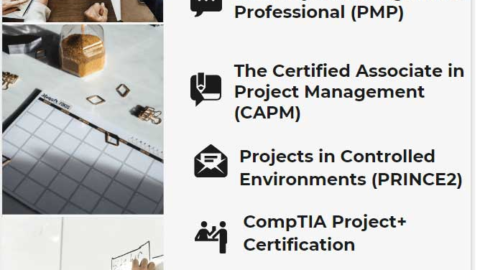Build a Strong Investor Relations Career: Things You Can Do Today To Make Your Job Easier
If you are considering a career as an investor relations professional, it is important to make sure you have diverse education and career experience. A typical day involves using your accounting skills, marketing talents, and investment knowledge for a investor relations career path. Focus your education and work experience toward meeting the needs of publicly-traded companies.
Table of Contents
Investor Relations Career Path
A career in investor relations typically involves working as a liaison between a company and its investors. The role of an investor relations professional is to communicate with investors, analysts, and other stakeholders to provide them with accurate information about the company’s financial performance, business strategy, and other relevant information that might affect their investment decisions.
The typical career path for an investor relations professional often starts with a bachelor’s degree in finance, accounting, or a related field, although some professionals may come from other backgrounds such as communications or public relations. Many companies prefer to hire individuals who have earned a Chartered Financial Analyst (CFA) designation or are pursuing one.
Entry-level positions in investor relations may include titles such as Investor Relations Associate or Analyst. As you gain more experience, you may be promoted to a Senior Investor Relations position or even a Director of Investor Relations, where you will have more responsibility for managing relationships with investors and developing communication strategies.
Some professionals may also choose to transition into investor relations from other fields such as corporate finance, accounting, or marketing, while others may move into different areas like Corporate Communications or Public Affairs.
Overall, a career in investor relations can offer a challenging and rewarding path for individuals who enjoy working with numbers, have excellent communication skills, and thrive in a fast-paced environment.
Develop Marketing Materials
One of your primary responsibilities is creating and approving marketing materials for the company’s investor relations websites, email campaigns, social media messages, and printed literature. While you will be directed by the marketing department regarding the overall strategic message, you must assemble the financial data provided to investors.
Build Communication Skills
As with any business, dynamic writing and speaking skills will help you grow in your Investor Relations Career. Your computer has built-in programs that correct spelling and grammar mistakes. Verbal skills can be more challenging to perfect. Work with a mentor or professional coach who gives you tips on how to present your message in a positive, professional manner. There are many online resources designed to help you build those skills.
Monitor News Sources
Get your news from multiple sources. You never know when something will happen that can impact the perception of your company’s stock. A competitor releases information about an upcoming product that competes with yours. Government regulations in another country impact your supply chain. A tragedy changes your company’s public relations messages. Great investor relations departments are prepared to respond quickly to external events that can impact investors’ perceptions of your company.

Prepare To Speak
If you are uncomfortable with public speaking, it is time to work on that. As an investor relations professional, you will be asked to present information to potential investors, board members, and employees. Seek out social and professional opportunities where you can practice your public speaking skills. Regardless of your comfort level with speaking, review these basic tips to help improve your presentation:
- Tailor your message to your audience
- Practice in front of a mirror and others
- Record your presentation and analyze it
- Ask for feedback from a mentor
- Share an anecdote
- Use visual aids
Review Financial Statements for a Investor Relations Career
Stay on top of your company’s and your competitors’ financial statements. These provide valuable information that your investors will also use to make their decisions. In addition to historical data, provide information about current spending opportunities and their potential to increase the company’s value. Don’t forget to share information about employees. If your company hires a well-known individual in the industry, promote that information to your investors.
Find a Cause
Investors want to know that their money is helping the environment. If the company does not commit to bettering the community around them, get one. Customers are more likely to support a company that partners with a community organization. Research a non-profit organization that offers a parallel to your company. Alternatively, you can speak with employees to determine if they have suggestions that are close to their hearts.
Build Your Education
If you have limited experience, it can be hard to get a job in an investor relations department. Most companies require that you have previous work in the industry. If you are still in school or willing to take online courses, you can focus on classes and activities that boost your knowledge.
- Declare a double major in accounting, public relations, business, or marketing.
- Then, take classes that allow you to receive a minor in one of the above fields when you graduate.
- Get an internship at a publicly traded company or private equity firm that will help you gain experience.
- Take an entry-level job at your ideal organization and work your way up.
Watch Your Investor Relations Career Grow
One of the best parts of working in investor relations is the many ways you define successful performance. But you perform tasks traditionally associated with multiple departments. As you grow in your investor relations career, you can develop your career path based on your interests and skills. With experience, you can transition to other roles that are equally rewarding. Many professionals transition to top management roles, such as chief financial officer, chief operating officer, chief marketing officer, or vice president.
Investor relations positions are growing exponentially. With this career, you can be assured that no two days will be the same. You will develop a more robust resume and be in demand by many companies.

11+ years strategic communications, marketing, and project management experience. I am a trainer at StarWood Training Institute, focusing on online courses for project management professionals.










